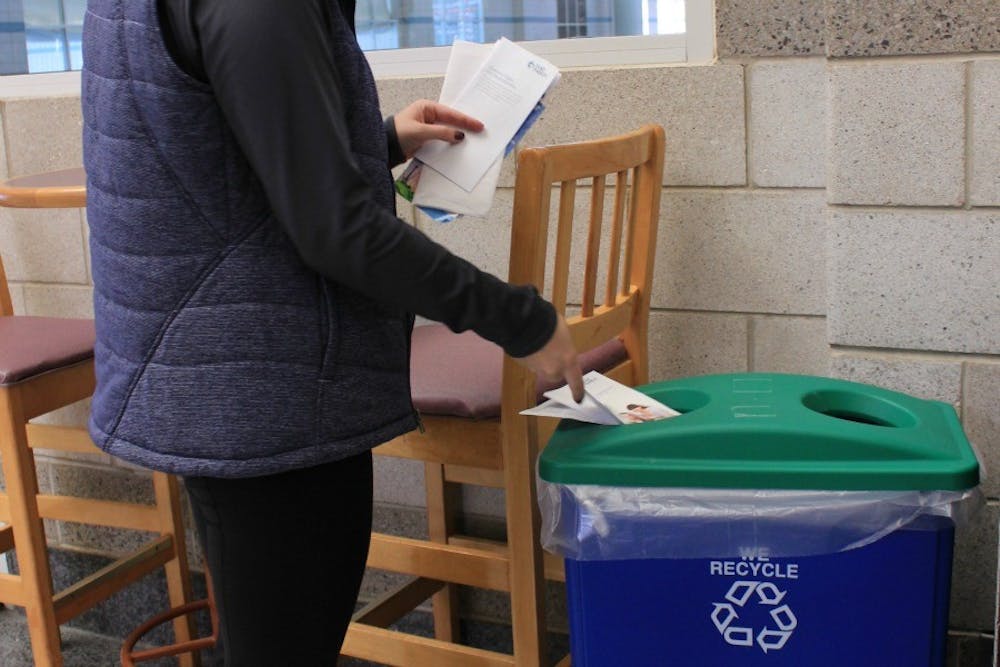By Paola Garcia, For The Miami Student
It's Thursday night and first-years Carrie Beck, Jackie Challoner and a group of fellow students are studying for a Chinese oral exam the next morning with recyclable materials surrounding them.
Around the students, there are Starbucks energy drink cans, water bottles and Chinese study guides lying across the floor of the room, soon to be recycled by the students and placed in the blue bins in the hall.
It all starts with students and their recycling habits. Beck sees recycling as something important to do for the environment, but does not make it her first priority when it comes to good habits.
"I try my best to recycle things like my boxes, water bottles, cans and old papers," Beck said, "but I don't view myself as an avid recycler."
Although usually not considered, recyclables on campus go through a journey, starting at Miami, before they are taken and transformed into another product and returned to a consumer's hands once again.
Rumpke Waste & Recycling, one of the largest privately owned residential and commercial waste and recycling firms in the United States has trucks that take the recyclables to the Materials Recovery Facility, a 12-acre facility located in St. Bernard, Ohio, 39 miles southeast of Oxford. The recyclables go through a semi-automated sorting line, while employees take out trash and other non-recyclables from the belt.
The recyclables are then separated by cardboard, paper, aluminum, steel and plastics, compressed into compacted bales weighing 800 to 1,200 pounds each and sold to manufacturers to be made into new products. The entire process takes approximately 11 minutes to be completed.
All on-campus residence halls have small recycling bins that students can use to separate their trash from recyclables. Although recycling is accessible in the halls, many students don't pay attention to where they are placing the recyclables and waste.
Matt Thiemann, one of Scott Hall's custodians, makes sure the residence halls are clean by taking out the trash and recycling bins. He sees first-hand how Scott Hall's nearly 350 students recycle.
"I take out an average of 15 pounds of recycling materials from Scott Hall each day," Thiemann said. "Most of the time, students put things like food and trash in the recycling bins, but it's not up to me to separate any of the trash from recyclables."
After the custodians take out the recycling from the residence halls and placed in blue recycling dumpsters, the recyclables are then picked up by Rumpke.
Yvette Kline, director of sustainability and energy conservation at Miami University Physical Facilities, works on increasing campus recycling. Rumpke sends Kline four reports a year about the amount of recycling material is collected from campus weekly.
"During the semesters, we collect, on average, 16 to 20 tons of recyclable materials per week from the recycling dumpsters," Kline said.
After a long night of studying, students recycle their empty energy drinks and old exam papers, without thinking of the process their recyclables will go through next.

